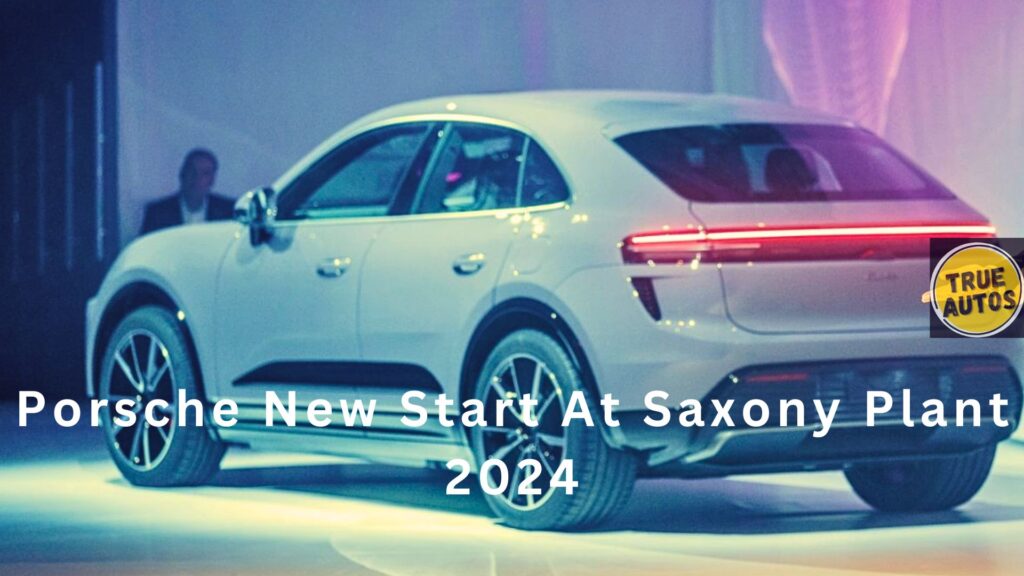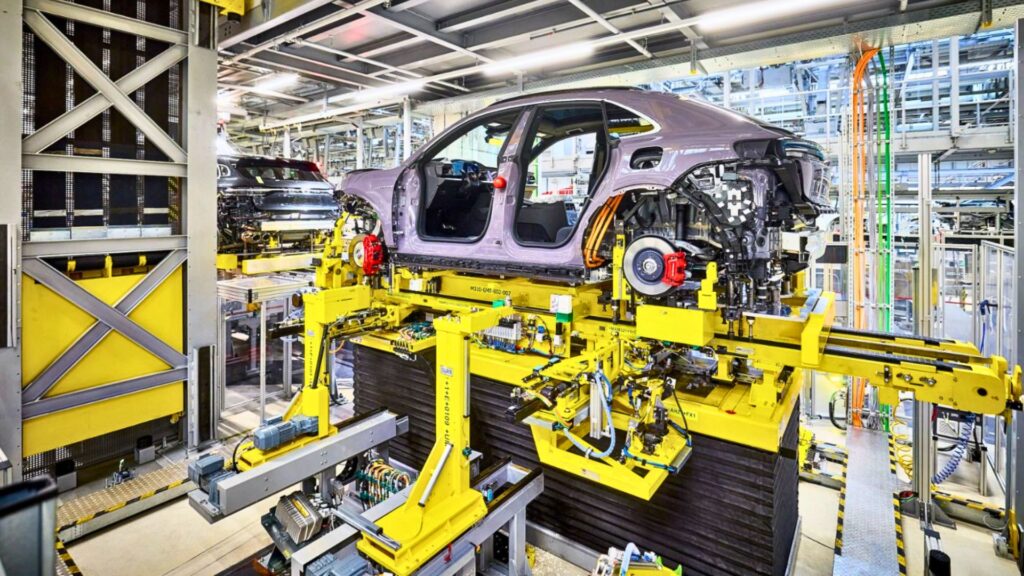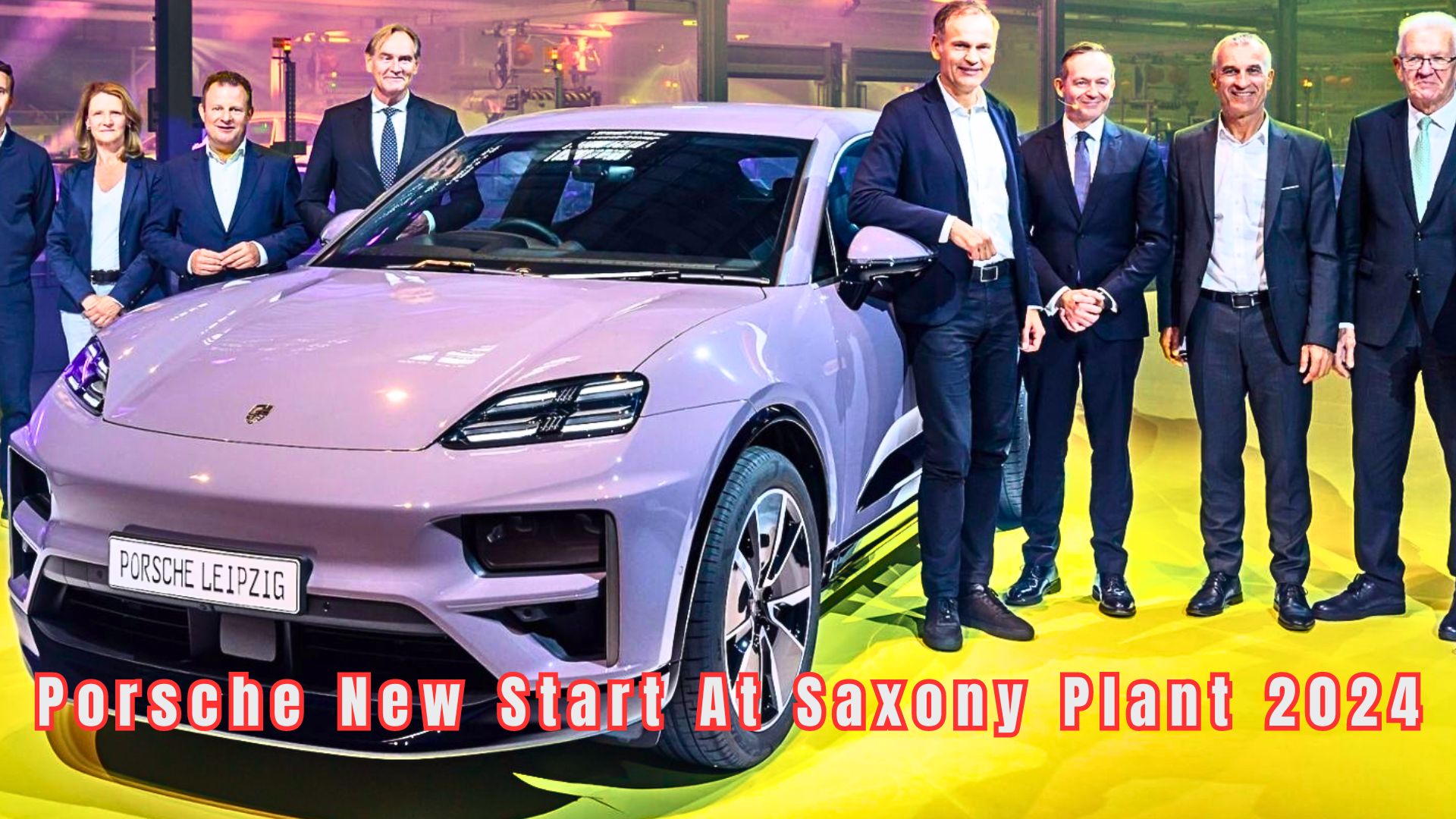Porsche Celebrates the Start of Electromobility at Saxony Production Site
Porsche marked a significant milestone in its journey towards sustainable mobility with the official launch of electromobility at its Saxony production site. The luxury sports car manufacturer has invested approximately 600 million euros in expanding the factory to accommodate the production of the electric Macan, featuring a new body assembly line. The plant, designed for maximum flexibility, will manufacture petrol, hybrid, and all-electric cars on a single production line, showcasing its commitment to innovation and adaptability.
A Grand Celebration with Prominent Guests
The celebration was graced by several high-profile guests, including Dr. Wolfgang Porsche, Chairman of the Supervisory Board, and Oliver Blume, Chairman of the Executive Board of Porsche AG. Political figures such as Dr. Volker Wissing, Federal Minister for Digital and Transport, Michael Kretschmer, State Premier of Saxony, Winfried Kretschmann, State Premier of Baden-Württemberg, and Burkhard Jung, Mayor of Leipzig, also attended the event. Members of the Porsche Sustainability Council were present to underline the significance of this milestone.

Pioneering Electromobility
The all-electric Macan follows the Taycan as the second fully electric model. By 2030, it aims to deliver over 80% of its new vehicles with an all-electric drive, depending on market demand and the development of electromobility worldwide. He emphasized the importance of flexibility, with offering a diverse product portfolio that includes combustion engines, plug-in hybrids, and all-electric models
The Historical Significance of Saxony
Car production has a long and storied history in Saxony, beginning with the opening of the Horch factory in Zwickau in 1904. Michael Kretschmer highlighted Saxony’s legacy as a cradle of German car making and its current role as a leading production site for all-electric vehicles in Germany and Europe.
Sustainability at the Core of Porsche’s Strategy

The commitment to sustainability is a key component of its Strategy 2030. The company aims to achieve a carbon-neutral balance sheet across the entire value chain for newly built cars by 2030. The Leipzig factory operates under the “smart, lean, and green” approach, aiming for an intelligently connected production system with minimal environmental impact. Albrecht Reimold, Porsche Executive Board Member for Production, noted, “We at Porsche are also working towards a carbon-neutral balance sheet across the entire value chain for newly built cars by 2030.”
Economic and Social Commitment
With over 4,600 employees, the factory in Saxony is a significant economic driver for the region, producing both the Macan and Panamera models. Porsche also actively supports local education, culture, social issues, sports, and environmental initiatives. Burkhard Jung praised its contributions, stating, “Porsche is not just an important economic driver here, but also a committed partner to the city.”
Preparing for the Future
As part of the plant’s expansion for the Macan, Porsche has been proactive in preparing its workforce for the shift towards electromobility. Gerd Rupp, Plant Manager, emphasized the importance of human resources in this transformation, stating, “Processes are becoming more robust and more efficient due to technologies such as augmented reality.
The Saxony production site stands as a testament to the company’s dedication to sustainable innovation, blending advanced technology with a commitment to environmental responsibility and community support. The launch of the electric Macan marks a new chapter in Porsche’s storied history, setting a high standard for the future of electromobility.

